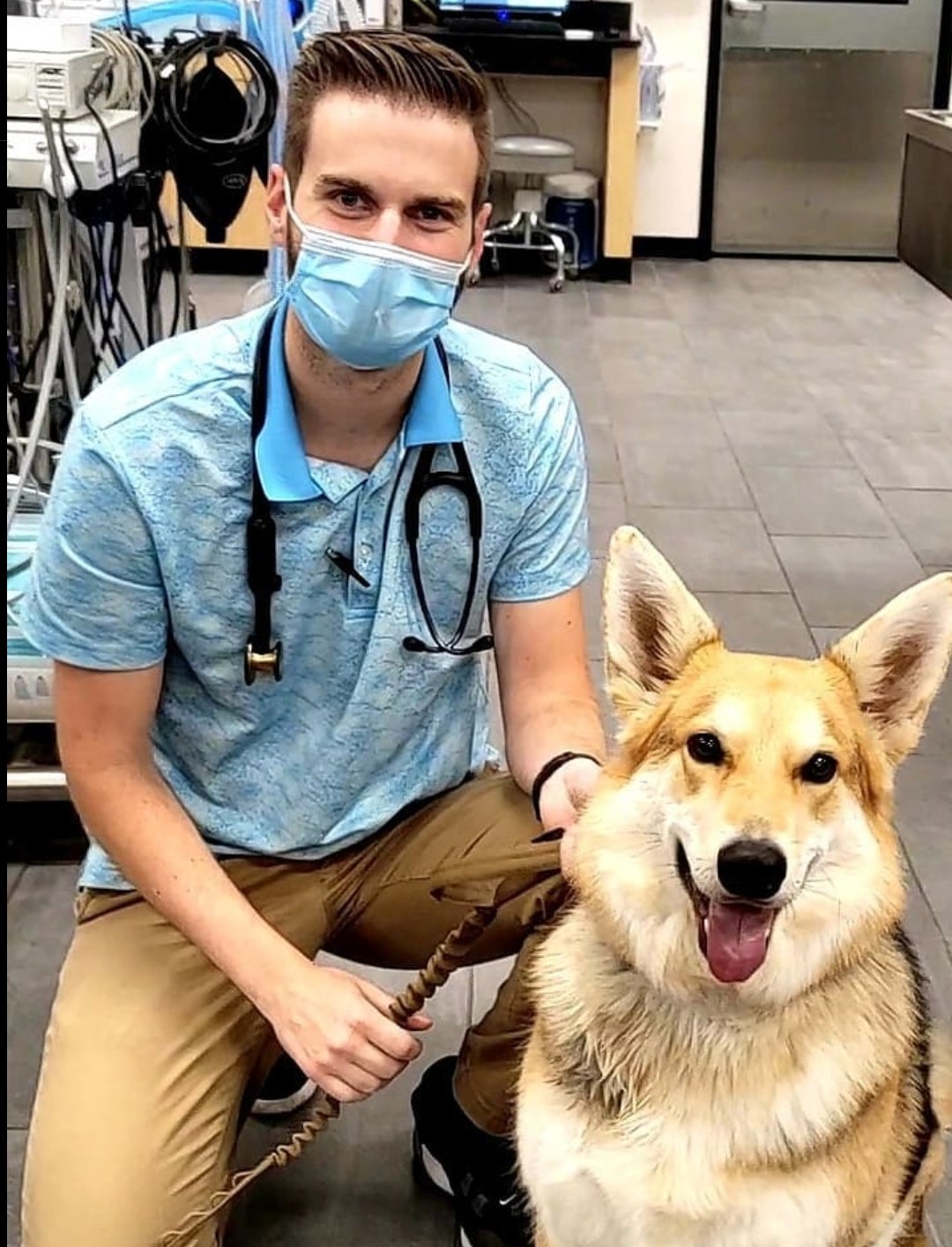Tips for Passing the NAVLE
Dr. Benjamin Berriman, DVM, got his start as a Banfield veterinary assistant—as a doctor, he’s now sharing his insights to help veterinary students prepare for the North American Veterinary Licensing Examinations (NAVLE) and become doctors themselves. Check out our conversation below for his top tips for studying and managing test anxiety.
Tell us about yourself and your journey with Banfield.
I started at Banfield as a veterinary assistant during vet school to get more experience working with cats and dogs. Before vet school, most of my experience was with zoo animals and exotics. Banfield gave me an opportunity to learn the technical skills I needed as well as the workflow of a general practice veterinary clinic. I am now a doctor at the same clinic I worked for as a veterinary assistant—I love that I can help continue to grow the practice that trained me as an assistant.
What tips can you give students preparing to take the NAVLE this fall?
Set clear goals for yourself and write them down somewhere you can see frequently. Make these goals measurable. Goals could be learning a difficult concept/species question that you struggle with or completing a certain amount of your study tools each day. Setting and writing down goals will help you stay organized and help get you to a point where you have the knowledge needed to pass. It is also a skill that will help you in your future career as you are trying to be a successful vet.
I also found writing my own charts or study guides helped me understand topics more than relying solely on the NAVLE study programs. The questions from the NAVLE study programs are a great way to test your knowledge, but I found the practice tests from the ICVA website were a better indicator of where my understanding of topics was.
How did you manage stress and test anxiety?
Remember, you worked hard to get to this point, so you are more prepared than you think you are. Don’t cram the night before or even the few nights before the test. I recommend not studying at all the night before and doing something you enjoy that night. Get sleep and be confident in yourself.
What can test takers do day-of to best prepare?
Get to the testing site early, so you don’t have to worry about the check-in process. They give you time for breaks during the test so take advantage of them. Later into the test, you will find your brain getting tired, take a break and let your mind go blank for a few minutes. Take your time when reading the questions and go with your gut instinct. With the studying you have put in, trust your first instinct with each question. If you are unsure about a question, put an educated guess, mark the question to come back to, and move on. You will find that there are questions you have no idea the answer to—that is normal and expected, so don’t let it throw you off.


